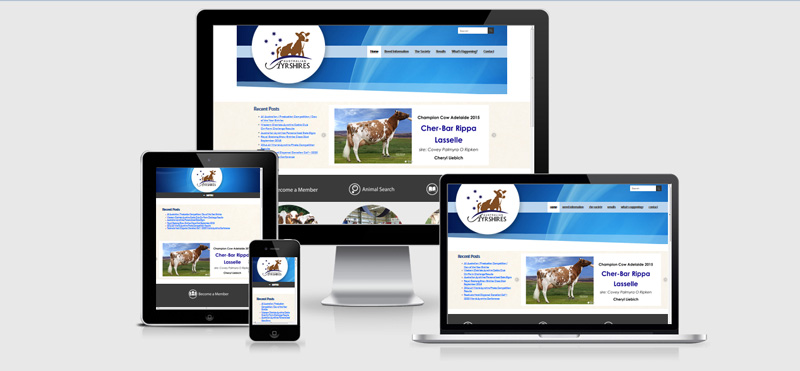The website development industry is constantly evolving. Design trends come and go. As technology develops, new functionality is introduced that wasn’t previously possible. As such, it’s only natural that website standards will change over time.
Here are five things that every website should have in 2018 to stay competitive.
An SSL Certificate
Over the past few years, you may have noticed the padlock that appears in the corner of a website browser.
![]()
This is a sign that the site has an extra layer of security to protect your private details. You can feel comfortable sharing payment and personal information, without fearing that hackers might get their grubby hands on them.
This is especially important for any business who collects information from visitors through their website (for example, an online store, contact form, member’s only section). However, even if you don’t take information through your website, it can still be a valuable way of building trust in your business. Website browsers are starting to alert visitors to the fact that a website is not secure. For obvious reasons, it’s not ideal for a customer/client to see this warning whenever they visit your site.

Easy to Use Contact and Location Information
If you own a ‘bricks and mortar’ business, then a primary purpose of your website is to drive potential customers to your door. To do this, you want to make it really easy for people to find and contact you.
One way of doing this is by embedding a Google Map on your website. Smartphone use has grown exponentially over the past five years and it is now common to resort to a Maps app when trying to find directions. Having an interactive map on your Locations page makes it easy for people to open, search and find directions to your place.
Another way to make contacting you super easy is to include a contact form on your website. This contact form then sends a notification to your inbox with the message or enquiry. From there, you can then call the number provided or respond by email.
Sure, you could also simply provide your phone number and email address on the page. But providing a way that people can contact you through your website just removes one extra small barrier in the process.
Mobile Responsiveness
If you’ve been reading our blog for a while, you might be getting sick of me bringing this up. In fact, we’ve mentioned the importance of having a mobile responsive website here, here, here and here. But that’s only because it’s so important.
If a website is ‘mobile responsive’ it means that it will change the way it is displayed depending on the size of the screen that it’s being used on. This makes it easier for websites to be viewed, read and navigated on smaller smartphones and tablets. As well as creating a better experience for your website viewers, it is also favoured by Google – meaning that you will rank higher in the search engine results.
If your website is not yet mobile responsive, but you would like it to be, you can find out more information here.
Testimonials
Testimonials are great because they give your business social proof.
The term “social proof” refers to the unconscious judgement your mind makes about something based on the actions of other people. For example, let’s say you walk past two restaurants. One is almost empty and the other has a line of people at the bar, waiting for a table. You are naturally going to conclude that the latter must be better.
As another example, maybe you’re tossing up between two different plumbers. One has a group of people singing their praises on their Facebook page. The other doesn’t have any reviews at all. Even though neither plumber has any negative reviews, you’re still going to gravitate towards the first option. Why? Well if so many people like the first one, there is a high chance you will like them too. How can so many people be wrong?
This influence can be leveraged in your own marketing. Including testimonials and reviews on your website is a great way to tell potential customers, “Hey, look over here! See how all these people think we’re great? You’re going to think that too!”.
A Great User Experience
When designing or updating your website, always consider the page from the visitor’s point of view. What kind of experience will they have when visiting your site? How easy is it for them to find the information that they need? At first glance, this seems like an obvious question, but it is often overlooked.
There are a few simple things that you can do to create a great user experience:
- Keep your menu simple and easy to navigate,
- Make sure the most important information appears at the top of the page,
- Use headings wisely to make the content easy to scan and read.
For more tips on increasing user experience and getting the most out of your website, visit here.












